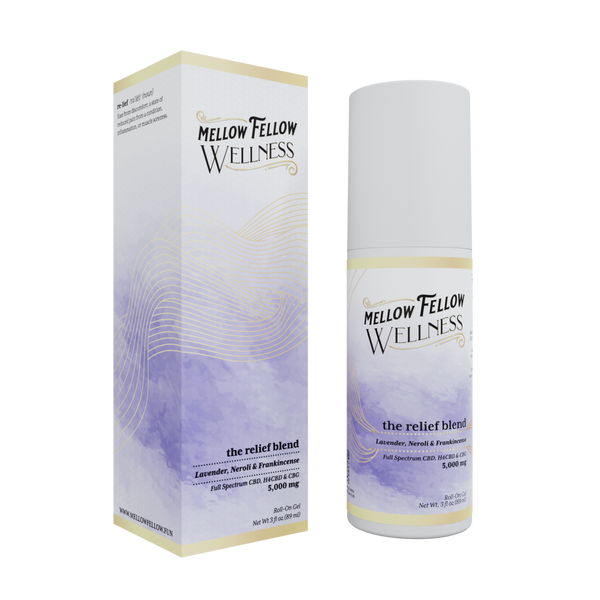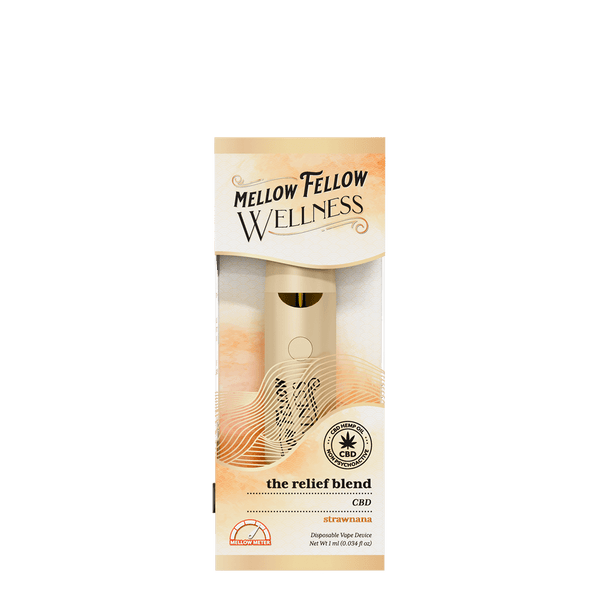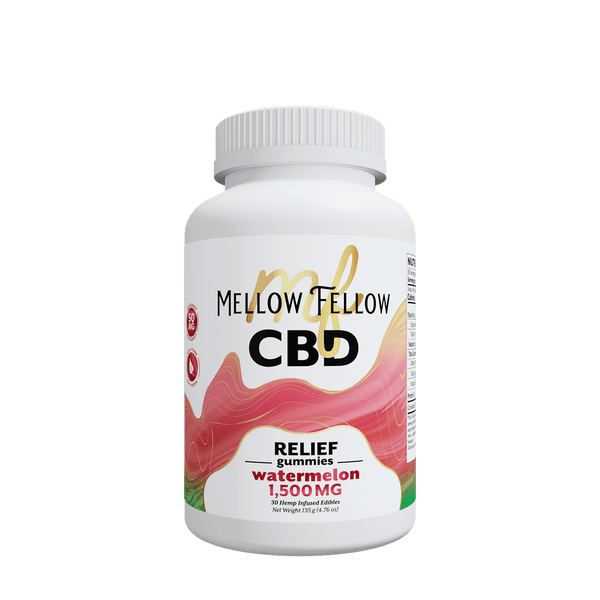Best Cannabinoid for Inflammation and Pain Relief

Curiosity and excitement have surrounded cannabinoids in recent years as legislation moves toward increased accessibility and the number of consumers rises. As awareness grows, more people are turning to live resin vape cartridges and other cannabinoid products to help manage everyday aches and pains.
With over 100 cannabinoids discovered, each with unique characteristics and effects, it’s no surprise that the industry is paying attention to how different compounds affect the body and mind.
But what are cannabinoids? And which are the best cannabinoids for inflammation and pain relief?
Let’s look a diverse range of cannabinoids and how they impact the body’s endocannabinoid system, potentially holding the key to unlocking pain and inflammation alleviation.
Key Takeaways
- Cannabinoids like CBD, THC, CBG, and CBN may offer unique properties for inflammation and pain relief.
- CBD’s versatility and tolerance make it a popular option for those seeking relief.
- THC, CBG, and CBN offer personalized alternatives for specific needs.
- Factors like potency, side effects, and individual health needs make each journey for the ideal cannabinoid unique.
Cannabinoids and Their Role in Inflammation
What exactly are cannabinoids? These compounds are found in cannabis plants, and with over 100 having been discovered so far, we’re still exploring how each cannabinoid affects the endocannabinoid system.
Each cannabinoid has a specific chemical structure that acts like a puzzle piece in the endocannabinoid system, causing the effects you associate with cannabis.
The endocannabinoid system, or ECS, is a complex network of messengers and receptors throughout the body that work to maintain balance and harmony in the body’s functions.
Receptors connected to the ECS are found throughout the body, and when cannabinoids bind to these receptors, they can regulate everything from mood and appetite to immune responses, including inflammation.
The versatility of cannabinoids is promising in the world of potential natural health remedies. Some cannabinoids showcase anti-inflammatory, analgesic, and neuroprotective properties, making them potential agents for soothing pain and inflammation.
While many cannabinoids have the potential to ease aches and pains, CBD leads the pack. Cannabidiol is celebrated for its effectiveness in reducing inflammation, but there are other players on the rise: THC, CBG, and CBN may also play a unique role in regulating and managing symptoms.
Key Cannabinoids for Inflammation and Pain Relief
Let’s appreciate some other cannabinoids that play a role in regulating immune response: THC, CBG, and CBN. Each offers a distinct approach to relief, leaving it up to the individual to experiment and find which cannabinoids are best suited for their needs.
While each cannabinoid has its unique therapeutic potential, let’s expand on the most well-known and arguably, the most beloved: CBD.
Cannabidiol plays a vital role not only in regulating responses like inflammation and pain but also enhances the overall effectiveness of other cannabinoids when used together.
CBD: A Leading Cannabinoid for Inflammation
CBD is a standout for inflammation—its reputation as a powerful force in regulating immune response has made it the best-known cannabinoid for pain and inflammation for a reason, for anyone and at any age.
But how does it work? The endocannabinoid system is comprised of two main receptors: CB1 and CB2.
CB1 receptors are mostly found in the central nervous system, while CB2 receptors are in peripheral tissues, most importantly, immune cells. CBD can modulate the activity of these receptors, reducing the production of inflammatory molecules, mediating pain perception, and reducing oxidative stress.
If you’re wondering what cannabinoid helps with inflammation and stomach pain, CBD is a stand-out choice. Its long run as the go-to non-psychoactive cannabinoid is well-deserved.
Relief doesn’t end with CBD. Other cannabinoids like THC, CBG, and CBN contribute to the varying effects that can help ease symptoms of pain and inflammation.
Related Products
Let’s have a closer look at how other cannabinoids play along.
Considering Other Potent Cannabinoids for Inflammation
While CBD stands as a pioneer in inflammation relief, let’s look at some other cannabinoids that answer the question: “Which cannabinoid is best for inflammation and pain?”
THC
THC (tetrahydrocannabinol) is best known for its potent psychoactive effects, but studies suggest it also boasts anti-inflammatory and analgesic properties. THC may also alleviate pain by binding to CB1 receptors, impacting the perception of pain.
CBG
CBG (cannabigerol) has recently emerged as a promising cannabinoid. With potential anti-inflammatory effects indicated by studies, this cannabinoid is gaining traction as a go-to for those seeking relief without psychoactivity.
CBN
CBN (cannabinol) is best known for its sedative effects, making it a go-to option for those being kept up by pain. Its potential as a pain relief ally is due to this cannabinoid’s interaction with CB1 receptors.
Cannabinoid Delivery Systems for Pain and Inflammation Treatment
Cannabinoid delivery systems for pain and inflammation can vary from person to person. Understanding the nuances of how you consume compounds can shape the effectiveness of treating specific needs, so let’s get into it.
Oral Consumption
- Method: edibles, capsules, tinctures, etc.
- How it works: oral consumption is absorbed through the digestive system and metabolized by the liver. While it may take longer to feel the effects, oral consumption offers prolonged and intense effects for long-lasting relief.
Topical Application
- Method: creams, balms, and patches.
- How it works: best for those seeking to target pain and inflammation in a specific area, topical cannabinoids interact with local receptors without entering the bloodstream. This method is best for localized relief without internal effects.
Inhalation
- Method: smoking or vaping.
- How it works: cannabinoids offer almost immediate absorption of cannabinoids through the lungs, providing fast-acting relief. This method is ideal for acute pain or inflammation.
Which Cannabinoid is Best for Inflammation?

The ideal cannabinoid for inflammation and pain varies from person to person. CBD’s popularity and accessibility make it a versatile and well-tolerated option, while THC, CBG, and CBN may cater to specific needs.
Each cannabinoid has its pros and cons: CBD is well-tolerated and accessible, but individual responses in effectiveness may vary.
Alternatives like THC offer potent anti-inflammatory effects but with the additional psychoactive effects, which are not for everyone. CBG and CBN hold potential as anti-inflammatory allies, but their limited research makes them less accessible.
When considering trying cannabinoids for pain and inflammation, it’s important to keep in mind factors like potency, side effects, and potential health needs. Speaking to a health professional before trying new cannabinoids is advised.
Whenever you’re ready to elevate your journey to relief, explore our exclusive cannabinoid products that provide you with a tailored experience like no other:
- Recover Blend Juicy Fruit Disposable Vape: portable, discreet, and designed for on-the-go relief.
- Recover Blend Ghost OG Disposable Vape: a potent blend for those who want a long-lasting experience.
- Recover Blend Jungle Cake Vape Cartridge: a unique blend of cannabinoids for all-over relief.
- Recover Blend Bubba Kush Disposable Vape: a comforting blend for relaxation and relief.
Final Thoughts
Cannabinoids stand as a versatile option to help people manage pain and inflammation. The effectiveness of cannabinoids in treating inflammation lies in the choices you make—from the selection of cannabinoids to how to consume them.
Embracing the power of informed decisions and the guidance of healthcare professionals ensures a path that not only alleviates inflammation but also does so responsibly.
Best Cannabinoids for Inflammation and Pain: Frequently Asked Questions
Does Weed Help with Inflammation?
Some cannabinoids like CBD, THC, CBG, and CBN can potentially regulate immune responses, including inflammation.
How Does Cannabis Help Inflammation?
Cannabis helps with inflammation by binding with CB1 and CB2 receptors, which mediate many body responses, including inflammation.
How Does CBD Compare to Traditional Anti-Inflammatory Medications?
CBD offers a natural choice to those seeking alternatives to traditional anti-inflammatory medications. It may also be used along with other treatments, but always talk to a doctor before taking cannabinoids with medication.
Can Using a Combination of Cannabinoids Enhance Inflammation Treatment?
CBD is a cannabinoid that may enhance the effects of other cannabinoids when used in conjunction.
What Should Users Consider when Choosing a Cannabinoid Product for Inflammation?
When choosing a cannabinoid product for inflammation, users should consider potency, personal tolerance, expectations, and potential side effects.
Explore Other Articles
View allExplore more
- 11 hydroxy thc
- Blends
- blunt
- burn blend
- cannabinoids
- cartridge
- CBD
- cbg
- CBN
- Charged Blend
- Clarity Blend
- Concentrates
- Connection Blend
- Creativity Blend
- Dabs
- delta
- delta 10
- delta 11
- delta 8
- Delta 8 thc
- delta 9
- delta 9 thc
- Delta-10-THC
- Delta-11-THC
- delta-8
- Delta-8-THC
- Delta-9-THC
- delta9
- Desire Blend
- destination series
- Diamonds
- disposable
- disposable vape
- Dream Blend
- dry january
- edibles
- elevate blend
- entourage
- entourage effect
- entourage effects
- Euphoria Blend
- focus
- gummies
- H4CBD
- halloween
- hemp
- hemp-derived
- HHC
- HHCp
- HTE
- Indica
- Introvert Blend
- lean
- legal
- Live Resin
- Live Resin cartridges
- m-fusions
- mechoulam
- momentum blend
- Motivation Blend
- preroll
- productivity
- raphael mechoulam
- Recover Blend
- Relief
- sleep
- strain review
- terp sauce
- Terpenes
- Thanksgiving
- thc
- THC Drink
- thc lean
- thc-p
- THCa
- THCb
- THCh
- THCm
- thcp
- THCp edibles
- THCv
- the elevate blend
- The Energy Blend
- The Happy Blend
- The Illuminate blend
- the momentum blend
- The Rest Blend
- Tranquility Blend
- vape
- vape cartridge
- Vapes
- wax
- wellness
- zkittlez


















Leave a comment